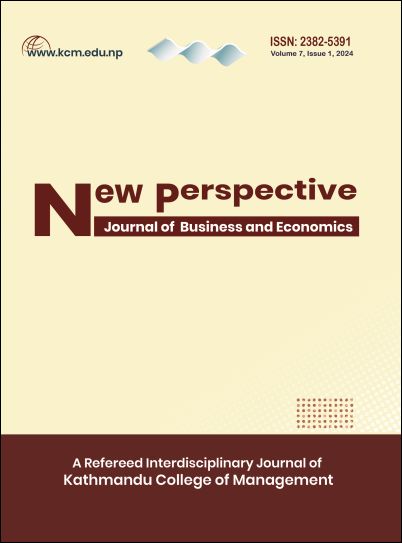The Evolving Influence of Artificial Intelligence on Customer Engagement Dynamics
DOI:
https://doi.org/10.3126/npjbe.v7i1.70059Keywords:
artificial intelligence, big data, customer loyalty, customer engagement, customer trustAbstract
This study examines the evolving influence of artificial intelligence (AI) on customer engagement dynamics, aiming to provide insights into how AI technologies can enhance engagement, loyalty, and trust among consumers. A quantitative research approach was employed with a causal research design. Data was collected from 140 individuals in the Kathmandu Valley, primarily undergraduate students aged 20-29 years, through a questionnaire utilizing a 7-point Likert scale. Correlation analyses were conducted using SPSS software version 23 to analyze the data. The study's findings highlight the transformative potential of AI in shaping customer engagement dynamics. By leveraging AI technologies, businesses can significantly enhance customer engagement and foster stronger relationships, ultimately driving competitive advantage and sustainable growth in an increasingly digital marketplace. The implications of this research suggest that understanding AI's capabilities can empower businesses to develop more effective customer engagement strategies. This presents opportunities for further investigation into the factors influencing the adoption and effectiveness of AI in customer engagement. Overall, this study contributes to the understanding of AI's role in customer engagement within the context of Nepal. Future research can provide valuable insights for businesses operating in emerging markets, informing the development of AI solutions tailored to the specific needs and preferences of local customers. By exploring these dynamics, organizations can better navigate the challenges of customer engagement in a rapidly changing technological landscape.
Downloads
Downloads
Published
How to Cite
Issue
Section
License
Copyright (c) 2024 Saramsha Niraula, Manii Bhadra Lama, Ketan Goel, Alina Shrestha

This work is licensed under a Creative Commons Attribution-NonCommercial 4.0 International License.




